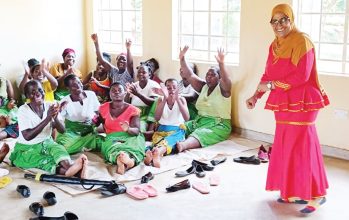No water, no surgeries
Prevailing water shortages in Zomba City attributed to vandalism have forced the Eastern Region referral hospital to suspend theatre operations, it has emerged.
In the meantime, Zomba Central Hospital is referring patients requiring surgery to St. Luke’s Mission Hospital in Malosa in the district and Queen Elizabeth Central Hospital (QECH) in Blantyre.
Zomba Central Hospital principal administrator Fredson Kambeni in an interview yesterday said the situation has affected healthcare service delivery at the facility.
He said the referrals were costly to the facility.
St. Luke’s Mission Hospital, owned by the Upper Shire Diocese of the Anglican Church, is about 30 kilometres (km) away while QECH is about 68 km from Zomba.

in nearby Chikanda Township
Said Kambeni: “To operate our sterilisation machine [that uses steam pressure to kill harmful bacteria, viruses and fungi] needs clean water. So, all the sterilisation are being done at Queens [QECH].
“If the situation continues, we will be forced to refer other patients to Machinga and Mangochi [district hospitals].
“Another serious concern is on sanitation. The facility doesn’t have pit latrines and patients or guardians are forced to use the same toilets, which poses a threat of an outbreak of waterborne infections.”
On Monday, a medical doctor confided in The Nation that the Eastern Region referral was forced to suspend the theatre services because the water supplied through bowsers by Southern Region Water Board (SRWB) was not as clean to facilitate operations.
Meanwhile, SRWB chief executive officer Duncan Chimbamba has said the board will spend about K500 million to restore water supply in Zomba City and surrounding areas.
Also speaking on Monday in Zomba when Minister of Water and Sanitation Abida Mia visited the site of the vandalism, he said the vandalism of the main pipeline caused the treatment plant to be flooded with mud, which led to the supply of dirty water to customers in the city.
Chimbamba said: “The board made a swift assessment and identified the vandalism, therefore, we closed the pipeline at the dam to avoid further wastage of water, as well as further damage.”
He said the restoration may take about eight days as construction materials, which include metal bars, cement and quarry are being ferried manually with support from the Malawi Defence Force (MDF).
“Temporarily, the board will be tapping water from Mulunguzi River for a makeshift water supply. But according to the assessment, supply will not be reliable as it will be associated with low pressure,” said the CEO.
Chimbamba has since asked the residents to exercise patience as the board is working on the full restoration of the water supply.
“So far, K150 million has been used in the exercise,” he said.
In her remarks, Mia called on development partners and non-State actors interested in hygiene and sanitation to help the board with water bowsers to supply Zomba residents with potable water.
She said the board has sourced eight bowsers from MDF and Zomba City Council, which are not enough to serve the population of over 600 000 people.
Mia said: “May other water boards as well across the country respond with immediate effect until the situation normalises as the vandalism has exposed the residents of the city to waterborne diseases and other abdominal infections like cholera.”
The minister further condemned the vandalism, saying it threatens the government’s dream of having potable water available to citizens across nationwide by 2030.
The crisis has also affected other public institutions in the city, including Zomba Central Prison, University of Malawi (Unima) and boarding schools.
At Unima, some students were seen searching for water as early as 4am. The situation follows vandalism of the Mulunguzi Dam transmission water pipeline by unknown thugs on Friday last week.
Malawi Prison Services public relations officer Chimwemwe Shaba could not comment on the matter saying he was not in the office.
Unima registrar Martin Matululu did not pick his phone when we tried to find out how the student population is coping in the face of the crisis.
However, since Saturday morning, some Unima students were seen bathing in nearby Mulunguzi River. As sourcing water for drinking and cooking, from boreholes in nearby Chikanda Township.
SRWB was also been providing water through bowsers.





